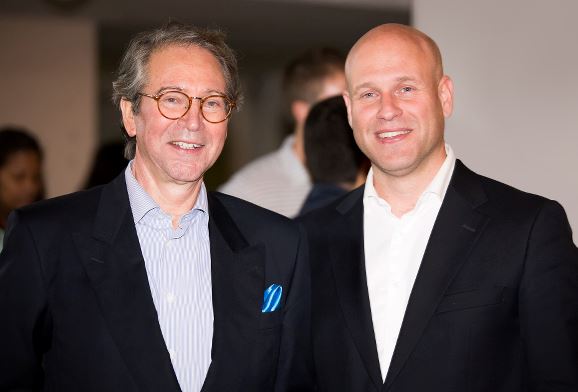
“AFTER A REAL TSUNAMI IN OUR ECONOMY AND TOURISM, IT IS TIME FOR A RECOVERY”
Tourism is trying to gradually recover to the situation in the country, and at the global level, it remains difficult for this sector.
Tourism is trying to gradually recover to the situation in the country, and at the global level, it remains difficult for this sector. Ambitur.pt hears from some Ambitur Advisers about the current situation. Manuel Proença, president of the Hoti Hotéis Group, answers our questions.
If the accessibilities were, two months ago, pointed out as touchstone of the tourist activity recovery, today, with the air links being reconnected, the question arises to the consumers?
Accessibilities are fundamental to justify a reopening of the national tourist sector, and as a result, this is what we conduct with the reopening of our hotels. They are a decisive factor. With the opening of borders and resumption of air connections, we will also perceive a gradual recovery of hotel demand. However, a dimension of tourism demand will depend on the intensity of the number of air connections and the “load factor” of flights to national airports. And also health policy decisions that might surprise us.
The resumption of consumer confidence – remains fundamental – will depend on controlling the spread of the virus and the discovery of a vaccine, or an anti-viral, that mitigates the risks caused by contagions. Until this occurs, we will have to manage the business “in sight” and with great flexibility, reservations at the last minute and unpredictable market reactions.
Do you think that we live in a time of unpredictability?
Completely. Take, for example, the recent British decision regarding travel to Mainland Portugal, an unexpected decision that is in no way justified. A disappointment and a colossal loss, especially for the Algarve. We hope this decision will be quickly changed.
Decisions are now agreed day by day, month by month, as times will be very troubled and unpredictable. We are facing the greatest professional challenge of our lives. Prudence is the watchword in the management of companies and also in the definition of investments.
The unpredictability in the face of consumer behaviour came to dominate the sector?
Today, travel is an essential service for the population of Europe and the world. Tourism will always continue to have a great future. It is a civilisation achievement – traveling and seeing the world – and that is irreversible. It is a matter of time. The market will recover slowly at first, and gradually reach pre-crisis demand levels, after the stabilization of health conditions. The opening of borders on the 1st of July, allowed the recognition of a favourable market reaction and the consumer trend to decide at the last minute and their well-known preferences.
However, we must be very attentive about what will happen soon and be agile, in order to adapt to the new dynamics of the market. This is what we are going to do in our Group.
What is possible, in what vectors can be acted, to mitigate this issue?
Understanding customers and their motivations, designing, and adapting our offer to meet their needs and expectations, are critical vectors in the current context.
I could give countless examples implemented by Hoti Hoteis, but I would like to highlight the elimination of non-refundable rates when marketing our offer, because unpredictability leads customers to value the flexibility of reservations. At the service level, we have implemented strict hygiene processes to ensure the safety and trust of our employees and customers within the hotel units. All hotel units managed by the Group are accredited with the “Clean & Safe” seal.
What can national destinations do in this context?
Reinforcing funds for market promotion and demand segments considered strategic and implementing an incentive policy for the dynamization of air routes are crucial in the short term.
As a result of the recent decision of the British authorities, Madeira and the Azores, are part the list of destinations for which non-essential trips are allowed, they shall not miss the opportunity to establish themselves as important destinations and gain new customers in that market. We hope that the rest of the United Kingdom – Wales, Scotland and Northern Ireland – will now make more informed decisions.
Domestic tourism is already gradually reacting and favouring low-density territories. The offer is promoting in the media intensively, very attractive vacation packages.
The effort to recover our national destinations is a collective duty, which needs the cooperation of several actors: – The municipalities that implemented the tourist taxes should suspend them until the market recuperates, the airport management entity should adjust the airport taxes to promote our destinations and implement a model to encourage the dynamization of routes, aligned with the new demand cycle. Turismo de Portugal (Portugal’s Tourism entity) and Regional Agencies should invest and reinforce funds for the promotion and allocation of incentives to boost demand.
Regarding the Government’s role, it is essential to continue supporting the sector with measures that favour its viability and the capitalization of companies in the tourism sector. Without them, recovery is not possible.
And they – the companies – support their customers, making credit and reservation criteria more flexible so that our destinations do not lose their competitiveness.
After a real tsunami in our economy and tourism, it is time for a recovery, because tourism will always have a great future.
Source: Ambitur